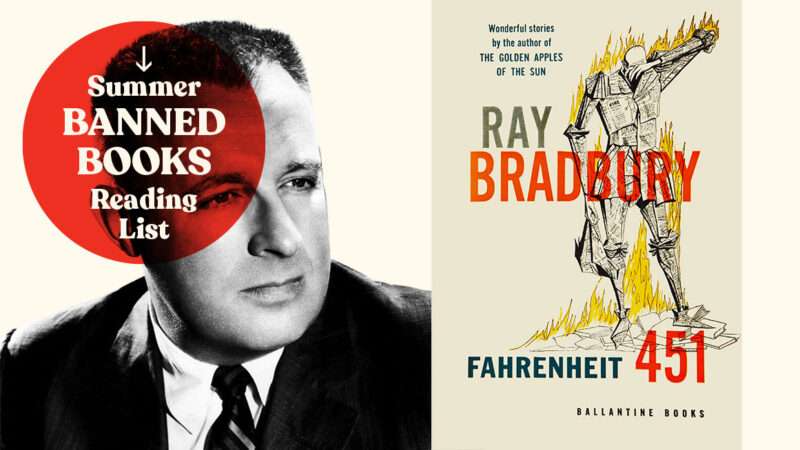
Who needs books when you have mass media to dull your brain, and mob passions to keep you enraged?
Ray Bradbury's Fahrenheit 451 (1953) is famously a novel about a world where books are banned and burned as a method of social control. The story follows Guy Montag, a "fireman" who sets books aflame. He's an agent of the state tasked with destroying literature that might spur people to think for themselves. Eventually, he is awakened to great writing's power to engage and enliven the mind.
But it's also a story about the power of modern media to both stupefy and incense the collective consciousness. It culminates in a crowdsourced manhunt televised for the amusement of self-satisfied dullards, all to serve the agenda of an authoritarian state. While the novel predates social media by decades, it describes what might be understood as media-driven cancel mobs. Bradbury understood how censorship could slide from seemingly innocuous attempts to ban a few "dangerous" ideas to prohibiting entire zones of thought, opinion, and inquiry—and eventually to direct attacks on the individuals who hold those ideas.
So it was rather ironic when, years later, the book became unavailable in its original form, having been sanitized for public schools. Starting in 1967, publisher Ballantine Books produced a second version of the text for consumption by high schoolers, omitting supposedly offensive curse words and a reference to a drunk. This version became known as the "Bal-Hi" edition, for Ballantine High School, and for several years it was available concurrently with the original text. In 1973, Ballantine began publishing only the Bal-Hi version, and it continued doing so until Bradbury, who had not consented to the publication change, complained in 1979.
Almost three decades later, with the original version of the book back on shelves, its use in schools was back up for debate. In 2006, several parents in the Conroe Independent School District in Texas protested the book's inclusion in the curriculum because of its language and its supposed denigration of firefighters. The school board eventually voted to keep teaching the book.
"It's just all kinds of filth," said parent Alton Verm, the Houston Chronicle reported. "I want to get the book taken out of the class." Verm's protest seemed to prove the novel's point: He admitted he hadn't read the book.
The post <em>Fahrenheit 451</em> Was Once Sanitized for Public Schools appeared first on Reason.com.






